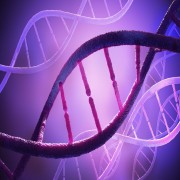Scientists link 36 genes to heart failure
The discovery of previously unknown genes implicated in heart failure could pave the way for personalised treatments to reverse the condition

In a recent study published in npj Systems Biology and Applications, researchers developed a new method to identify 36 new genes that could lead to heart failure.
"This is an exciting direction for personalised medicine and also for identifying genes and therapeutic targets for complex diseases that involve many genes," said Dr Alain Karma, a Northeastern University physics professor, to Science Daily.
While personalised therapy still has a long way to go, the authors suggested that the method they developed and the genes that can be identified represent a step closer to creating targeted drugs.
Lead author and postdoctoral research associate at Northeastern's Centre for Complex Network Research, Dr Marc Santolini, explained that the study includes ways in which the method could be used to predict whether individuals suffering from a particular disease will respond to a given drug treatment.
“The method can predict beforehand whether a patient should be prescribed a different drug by using just a simple blood test. This would save time and accelerate the therapy," he said in Science Daily.
In the traditional approach to identifying genes related to heart disease, researchers use donated healthy hearts from patients who have died unexpectedly. They then compare their genetic make up with diseased hearts explanted from end-stage heart failure patients undergoing heart transplant.
According to Dr Karma, this method has not been very successful in identifying important genes, so the scientists took a different approach using a collection of 100 genetically different strains of mice, with each strain having a twin of genetically identical mice for analysis.
Researchers gave one of the two identical mice a stressor drug that induces heart failure, then compared its genetic expression with the non-stressed twin to identify an individual gene that changed due to the heart stressor.
The researchers plan to test the new method on human stem cells, which have the same genetic code.
This story was originally published in the Global Health and Travel issue of August-September 2018.
Related Articles
Some infections linked to heart attack and stroke
Patients affected by common infections have a higher risk of heart attacks, stroke, and death, a new study finds
Read moreRoadside pollution can alter heart structure
Meeting pollution safety guidelines may not be enough to protect public health
Read moreNo good cholesterol for postmenopausal women?
Study suggests doctors need to rethink benefits of HDL cholesterol
Read moreLatest Articles
Medical Care
Achieving Swift Recovery: Enhanced Recovery (ERAS) Direct Anterior Approach Total Hip Replacement
Consider total hip replacement with Alps Orthopaedic Centre's ERAS Direct Anterior Approach for faster recovery and reduced hospital stays. Learn about Dr. Jerry Chen's expertise in Singapore.
Read moreMedical Care
Enhanced Recovery (ERAS) Total Knee Replacement
Discover how Alps Orthopaedic Centre's Enhanced Recovery After Surgery (ERAS) approach transforms total knee replacement into a day surgery, offering faster recovery, less pain, and reduced hospital bills. Learn about Dr. Jerry Chen's expertise and schedule your appointment in Singapore.
Read moreMedical Care
Clinical Exercise Physiologist (CEP): The Emerging of Exercise is Medicine
How Exercising can be a Medicine
Read more